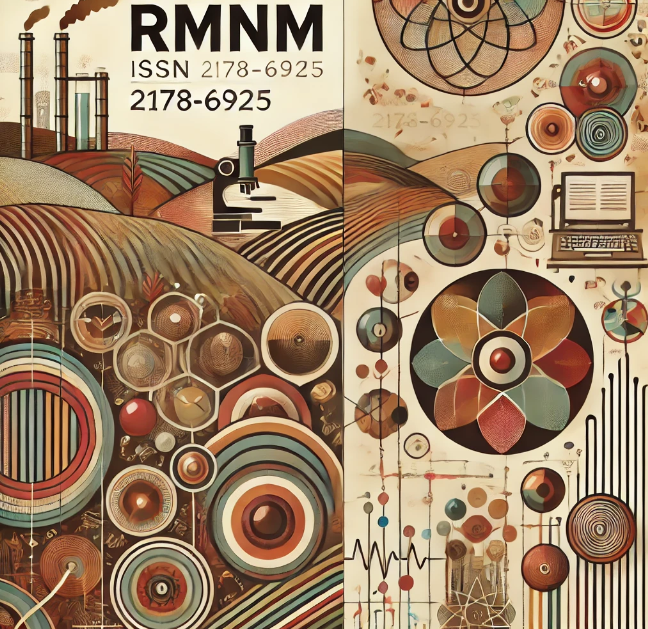HUMANITY AND TECHNOLOGY:
ETHICAL AND PHILOSOPHICAL IMPLICATIONS
DOI:
https://doi.org/10.61164/rmnm.v12i1.3062Keywords:
Humanity, technology, anthropocene, futurologyAbstract
This article explores the complex ethical and philosophical issues that arise with the development of new technologies, addressing their potential benefits, such as increased productivity, improved services and the resolution of global problems, while warning about their risks, such as algorithmic discrimination, loss of human control over electronic systems, climate change and the Anthropocene. The study also examines the different ethical principles that can be used to guide the development and use of artificial intelligence, such as the principle of beneficence, the principle of non-maleficence, the principle of justice and the principle of autonomy, in addition to establishing connections between technological advances and areas of philosophy, such as Transhumanism and Futurology, in the development of a solid ethical framework to ensure that it is used responsibly and beneficially for humanity.
References
ASIMOV, Isaac. I, Robot. 1. ed. Gnome Press, 1950.
BODDINGTON, Paula. Towards a Code of Ethics for Artificial Intelligence. 1. ed. Springer, 2017.
BOSTROM, Nick. Human Enhancement. 1. ed. Oxford University Press, 2009.
BOSTROM, Nick. Superintelligence: Paths, Dangers, Strategies. 1. ed. Oxford University Press, 2016.
BOYD, Danah; CRAWFORD, Kate. 2012. Critical Questions for Big Data. Information, Communication & Society, 15, 2012. p. 662–679.
COECKELBERGH, Mark. AI Ethics. 1. ed. The MIT Press, 2020.
COECKELBERGH, Mark. New Romantic Cyborgs. 1. ed. MIT Press, 2017.
CONCEIÇÃO, Gislaine Cristina da. Big Data e Dados Pessoais: Questões Legais Emergentes na Perspectiva da Ciência da Informação. Dissertação (Mestrado em Ciência da Computação) – Universidade Federal de São Carlos. São Carlos, 2023.
DONAHUE, Wesley. Professional Ethics: A Competency-Based Approach to Understanding and Applying Professional Ethics. 1. ed. Independente, 2021.
DRUGA, Stefania; WILLIAMS, Randi. 2017. Kids, AI Devices, and Intelligent Toys. MIT Media Lab. 6 de jun. de 2017. Disponível em: <https://www.media.mit.edu/posts/kids-ai-devices/> Acesso em: 05 de abr. de 2024.
FUCHS, Christian. Digital Labour and Karl Marx. 1. ed. Nova York. Routledge, 2014.
FULLER, Steve. Humanity 2.0: What It Means to Be Human Past, Present and Future. 1. ed. Palgrave MacMillan, 2011.
HAKKEN, David. Computing And Social Change: New Technology and Workplace Transformation, 1993. Department of Sociology and Anthropology & Technology Policy Center, SUNY Institute of Technology, Utica, Nova York, 1993.
JACOBS, Kerrin Artemis. Digital loneliness—changes of social recognition through AI companions. Frontiers. 2024. Disponível em: <https://www.frontiersin.org/journals/digital-health/articles/10.3389/fdgth.2024.1281037/full>. Acesso em: 05 de mai. de 2024.
KHARPAL, Arjun. Stephen Hawking Says A.I. Could Be ‘Worst Event in the History of Our Civilization’. CNBC. 6 de nov. de 2017. Disponível em: <https://www.cnbc.com/2017/11/06/stephen-hawking-ai-could-be-worst-event-in-civilization.html>. Acesso em: 01 de mai. de 2024.
KURZWEIL, Raymond. The Singularity Is Near. 1. ed. Viking Penguin, 2005.
LEAVER, Tama; WILLSON, Michele; BALNAVES, Mark. Transparency and the Ubiquity of Information Filtration?. 2012. Disponível em: <https://www.ctrl-z.net.au/articles/issue-2/leaver-willson-balnaves-transparency-and-the-ubiquity-of-information-filtration/>. Acesso em: 30 de mar. de 2024.
LEM, Stanisław. Summa Technologiae. 1. ed. Wydawnictwo Literackie, 1964.
LEWIS, Simon L.; MASLIN, Mark A. Defining the Anthropocene. Science, 519, 2015.
MARCUSE, Herbert. One-Dimensional Man. 1. ed. Boston. Beacon Press, 1991.
MASINI, Eleonora; SAMSET, Knut. Recommendations of the WFSF General Assembly. WFSF Newsletter. jun. 1975. p. 15.
MCLUHAN, Marshall. Laws of Media: The New Science. 1. ed. Toronto University Press, 1988.
MIN, Alfonso. Artificial Intelligence And Bias: Challenges, Implications, and Remedies. 2023. Disponível em: <https://www.researchgate.net/publication/374232878>. Acesso em: 19 de mar. 2024.
PITEIRA, Martinha; APARICIO, Manuela; COSTA, Carlos J. A Ética na Inteligência Artificial: Desafios. Instituto Universitário de Lisboa. Lisboa, 2022.
SCHMIDT, Douglas. Google Data Collecting, 2018. Institute for Software-Integrated Systems, Vanderbilt University, Nashville, Tennessee, 2018.
SEN, Jaydip. Security and Privacy: Issues in Cloud Computing. 2015. Disponível em: https://www.researchgate.net/publication/345128332. Acesso em: 20 abr. 2024.
SHANAHAN, Murray. The Technological Singularity. 1. ed. The MIT Press, 2015.
TAUBE, Mortimer. Computers and Common Sense: The Myth of Thinking Machines. 1. ed. Geminis, 1961.
TAVANI, T. Herman. Ethics and Technology. 4. ed. Wiley, 2013.
TURKLE, Sherry. Alone Together: Why We Expect More from Technology and Less from Each Other. 1. ed. Nova York. Basic Books, 2011.
Downloads
Published
How to Cite
Issue
Section
License
Copyright (c) 2024 Revista Multidisciplinar do Nordeste Mineiro

This work is licensed under a Creative Commons Attribution-NonCommercial-ShareAlike 4.0 International License.







